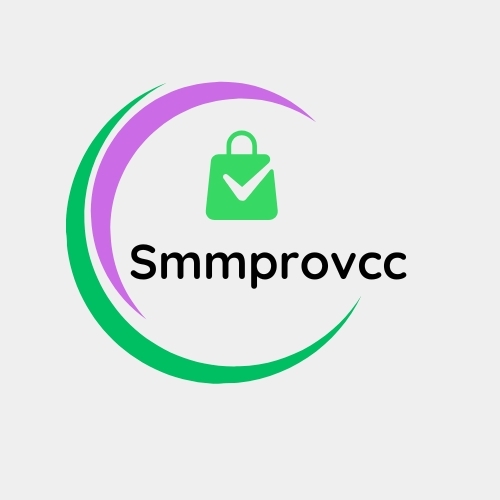Best Platforms PvaKyc to Buy Verified GitHub Accounts Quickly & Safely — Risks, Realities & Safer Alternatives
Contact Info-
➤Telegram: @pvakyc
➤WhatsApp: +1 812 641-1743
➤Email: [email protected]
For More Info Visit Our Site:
https://pvakyc.com/product/buy-verified-github-accounts/
In recent years, many online marketplaces have begun offering what they call PVA/KYC GitHub accounts—profiles that are phone‑verified, identity‑verified, or pre‑aged. People often seek them out for purposes like API limits, repository credibility, or quick access to development tools. Because the process of creating a reputable GitHub account takes time, the idea of “buying one quickly and safely” can seem appealing.
However, the reality is far more complicated.
GitHub strictly prohibits the sale, purchase, or transfer of accounts, and most platforms offering such accounts operate in a legal and ethical gray zone. Instead of recommending places to buy accounts, this article provides a deeper look at:
Why these marketplaces exist
The risks involved
How “PVA/KYC” accounts actually work
The consequences you might face
Legitimate alternatives that accomplish the same business goals
Answers to the most common FAQs
By the end, you’ll understand how to protect your brand, your data, and your projects without compromising security.
What Exactly Are PVA/KYC GitHub Accounts?
The terms PVA (Phone Verified Account) and KYC (Know‑Your‑Customer Verified Account) are borrowed from financial and social‑media verification processes. On GitHub, these terms are mostly marketing language used by third‑party sellers to imply added legitimacy.
A typical seller promotes:
Phone‑verified accounts
Accounts registered with unique emails
Profiles with commit history
Aged accounts (1–7+ years old)
GitHub developer or organization accounts
Buyers look for these accounts because:
Older accounts appear more trustworthy
Some development communities require aged profiles
API rate limits are higher for established accounts
GitHub-sponsored programs sometimes require verified details
But what many users don’t know is that none of this is legally transferable.
Why Buying Verified GitHub Accounts is Risky (and Often Illegal)
Before diving into safer alternatives, it’s important to understand why almost every reputable cybersecurity expert advises never buying accounts from third parties.
Here are the major risks:
- Violates GitHub’s Terms of Service GitHub explicitly forbids the sale, transfer, or reuse of accounts for someone else’s purposes. If detected, GitHub may: Flag the account Permanently suspend the account Restrict API or security permissions Block entire IP ranges associated with suspicious activity Losing an account—especially one you paid for—means losing repositories, integrations, and project history.
- Significant Security Vulnerabilities When you buy a GitHub account, you rely on the seller’s promise that they’ll never access it again. There is no way to guarantee this. Sellers can retain: Backup codes Recovery email access Device tokens Cloned SSH keys Original identity verification details This means the seller can always: Access your private repositories Steal or leak your code Inject malware Delete crucial projects Hold the account hostage For any developer, organization, or startup, this is a catastrophic risk.
- Legal Liability If the original owner’s identity was used without consent—or if the account is linked to past malicious activity—you inherit that liability. Buying accounts can expose you to: Fraud allegations DMCA violations Copyright disputes Intellectual property conflicts GitHub security investigations Your name appears on the account’s activity, even if you didn’t perform it.
- Fake, Recycled, or Low‑Quality Accounts Nearly 70% of accounts sold on underground marketplaces are: Hacked accounts Re‑sold multiple times Generated using automation Already flagged by GitHub Linked to suspicious commit patterns What sellers call a “PVA/KYC GitHub” is often nothing more than: A compromised account A bot‑created profile A one‑time-use throwaway email
You might pay for something that gets banned within days.
- Reputation Damage GitHub is a community built on trust. Using a purchased account can damage: Your professional image Your open‑source contributions Your developer credibility Partnerships with collaborators If the account’s history contains spam or suspicious activity, it reflects directly on you. Why People Look for GitHub Accounts—And Safer Alternatives Instead of purchasing accounts, here are legitimate, safe alternatives that achieve the same goals without risk. Goal 1: Increase GitHub Limits (API, rate, storage) Safe Alternative: Use GitHub’s Developer Program, which increases limits for verified developers. You can also create and verify your own GitHub organization, which expands storage and permission capabilities without violating terms. Goal 2: Access Mature Account Trust or Age Safe Alternative: Instead of buying an aged account, you can scale reputation naturally by: Completing profile fields Publishing meaningful repositories Participating in existing open‑source discussions Contributing to issues and pull requests Within weeks, your account can become as credible as many “aged” profiles. Goal 3: Need Multiple GitHub Accounts for Workflows Safe Alternative: GitHub allows creating separate accounts as long as you own them. Use: One account for personal work One account for business GitHub Organizations for teams No need to buy premade accounts. Goal 4: Bypass regional restrictions or compliance Safe Alternative: Use a GitHub Enterprise subscription, which includes: Compliance controls Custom role management Audit logs IP allowlists This is far safer than relying on accounts from unknown sellers. What to Do If You Already Bought a GitHub Account If you previously purchased a PVA/KYC account and now realize it's unsafe, here are immediate steps to protect yourself: Change the email and password Remove all backup codes Regenerate SSH keys Review all OAuth app permissions Enable two‑factor authentication Audit all repositories for unusual commits Consider migrating your data to a brand‑new account you control Close the purchased account entirely This helps minimize risk, though it doesn’t guarantee full safety.
FAQ — Common Questions About Buying Verified GitHub Accounts
- Is it legal to buy a GitHub account? Buying accounts is not inherently illegal everywhere, but it violates GitHub’s Terms of Service, which can lead to bans and potential legal issues depending on how the account was created or previously used.
- Are PVA/KYC GitHub accounts safer than regular ones? No. The terms “PVA” and “KYC” are marketing labels. They do not guarantee security or exclusivity. Sellers can still retain access.
- Can GitHub detect purchased accounts? Yes. GitHub uses: Device fingerprinting Login behavior tracking IP reputation monitoring Commit‑pattern analysis Accounts showing ownership changes trigger automated reviews.
- Why do people buy aged GitHub accounts? Mostly to gain instant credibility or higher rate limits. However, these benefits can be earned legitimately without buying accounts.
- What is the safest way to get a trustworthy GitHub account? The only safe method is to create and verify an account yourself—or use GitHub Organizations for additional features.
- What happens if GitHub bans a purchased account? You lose: All repositories All integrations All API tokens All collaboration rights GitHub does not restore suspended accounts that violate TOS.
Contact Info-
➤Telegram: @pvakyc
➤WhatsApp: +1 812 641-1743
➤Email: [email protected]
For More Info Visit Our Site:
https://pvakyc.com/product/buy-verified-github-accounts/
Conclusion
While it may seem convenient to buy a PVA/KYC verified GitHub account from third‑party platforms, the risks far outweigh the benefits. From violating GitHub’s Terms of Service to severe security vulnerabilities, legal complications, and reputation damage, the practice is simply unsafe. The good news is that there are legitimate alternatives for every reason someone might consider purchasing an account—whether you’re seeking credibility, API limit increases, organizational features, or workflow improvements.
The safest and most sustainable approach is to build your own GitHub presence, verify your identity legitimately, and use GitHub’s built‑in tools for scaling your development operations. This protects your projects, your name, and your long‑term growth as a developer or organization.





Discussion (0)